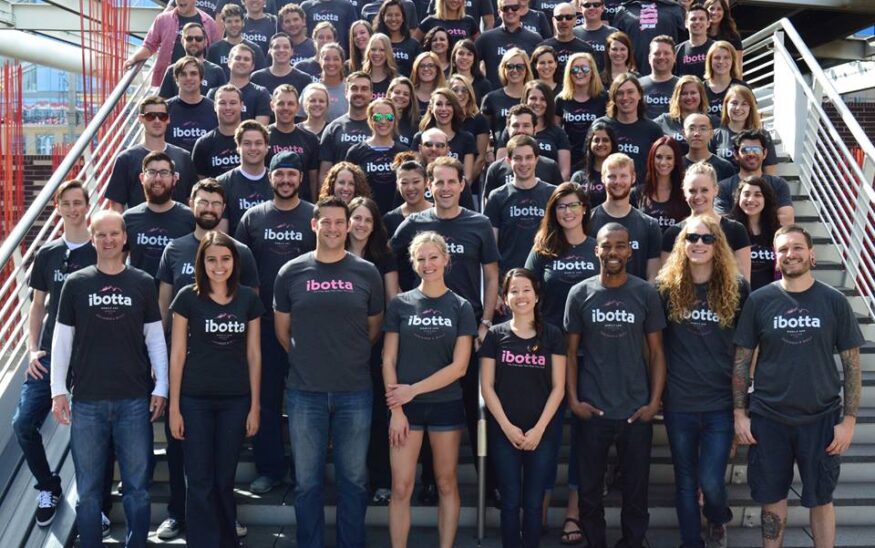Why Setting the Cultural Tone for an Organization Starts at the Top
Here are a few ways CEOs can strive to achieve an inclusive and stimulating work environment
Bryan Leach //March 7, 2018//


Why Setting the Cultural Tone for an Organization Starts at the Top
Here are a few ways CEOs can strive to achieve an inclusive and stimulating work environment
Bryan Leach //March 7, 2018//

Workplace culture is one of the buzziest phrases known to businesses today, and for good reason. Culture is what shapes employees’ feelings about their jobs, relationships at work, and the processes around how to get work done. And while it can be tough to define what culture means to different organizations, it’s a critical measure of both employee acquisition and retention.
CEOs have a responsibility to establish the cultural spirit for their organization and lead by example. Creating a positive and motivating workplace culture is not easy, but the benefits in the long run include:
- Increased employee productivity
- Boosted growth
- The ability to hire top talent
Here are a few ways CEOs can strive to achieve an inclusive and stimulating work environment that inspires everyone from the executive level all the way down to entry-level employees.
CONSISTENTLY ECHO CORE VALUES
Understandably, today’s workforce wants to feel like their work has meaning and purpose on a larger scale. Without insight into the why and what for, employees aren’t motivated to do their best. CEOs are uniquely positioned to emphasize what everyone is working so hard for, and the values that guide the choices made and not made along the way. Grounding decisions in company values are particularly important in high-growth companies because employees otherwise worry the company will lose its way or its culture may become diluted.
ESTABLISH TRANSPARENT GOALS + CELEBRATE PROGRESS
Teams want to know what it takes to be successful. They also want to know how well their company is doing in terms of achieving its goals. While every organization is different as they disseminate information, giving a kudos to well-deserving team members and celebrating company wins can go a long way in making everyone feel connected to a common end goal. It's also important not to change the goals too often. Try hanging them in a common area, in giant font, so everyone knows what they are and that they aren't changing.
REITERATE THAT GOOD IDEAS CAN COME FROM ANYWHERE
In creating a strong workplace culture, it’s essential that each employee feels like his or her ideas will not only be heard but put into action when applicable. Whether it’s rolling out a new product feature, trying a different market strategy or adjusting internal processes, recognizing good ideas publicly ensures more people step forward to contribute and reinforces the senior team doesn't have all the answers.
BE OPEN TO FEEDBACK + ADMIT FAILURE
Even senior leaders don’t always have it all figured out, and when a CEO is vulnerable, asks for help or admits that something didn’t go as planned, it’s powerful – and relatable – for her team. There are still plenty of things to improve upon at the C-level. If team members feel like everything is always hunky dory and all taken care of, they’re much less inclined to step up take ownership over helping to improve a bad situation. Demystifying the senior leadership team allows others to take risks by suggesting bold new ideas.
GIVE CREDIT WHERE CREDIT IS DUE
Everyone loves an origin story– whether it’s a superhero saga or the tale of a visionary entrepreneur beating the odds and building a successful business from the ground up. But in reality, it's always a team effort. CEOs who recognize this and acknowledge the contributions of their team in public settings are more likely to inspire others to continue collaborating with them. Recognition and feeling seen is as important as salary and benefits to many employees, especially those just getting started in the corporate world.
As intangible as culture can be, it has the incredible power to make or break a business. That’s why executives should never put the sole focus on product. Instead, they should ask themselves – how do we want to be remembered? With a shift in thinking around what’s truly important to achieve the best workplace culture, executives can set the stage for employees and provide much-needed meaning and value to the work they do every day.
 Bryan Leach is the CEO and founder of Ibotta.
Bryan Leach is the CEO and founder of Ibotta.



























